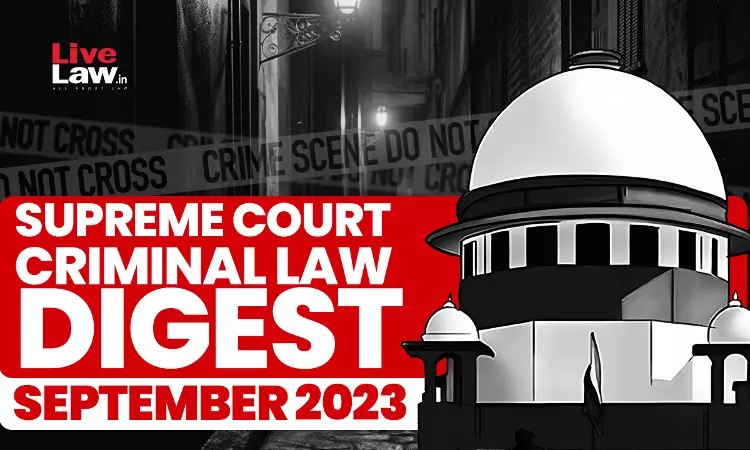- Home
- /
- Top Stories
- /
- Supreme Court Criminal Digest...
Supreme Court Criminal Digest September 2023
LIVELAW NEWS NETWORK
15 Nov 2023 10:53 AM IST
Bail - One cannot apply one bail order to all the other subsequent cases. (Para 8) PACL v. Central Bureau of Investigation, 2023 LiveLaw (SC) 747 : 2023 INSC 795Can anticipatory bail be granted to proclaimed offender? only in exceptional & rare cases, holds the Supreme Court. State of Haryana v. Dharamraj, 2023 LiveLaw (SC) 739 : 2023 INSC 784Certified copy can be produced to prove...
Next Story



